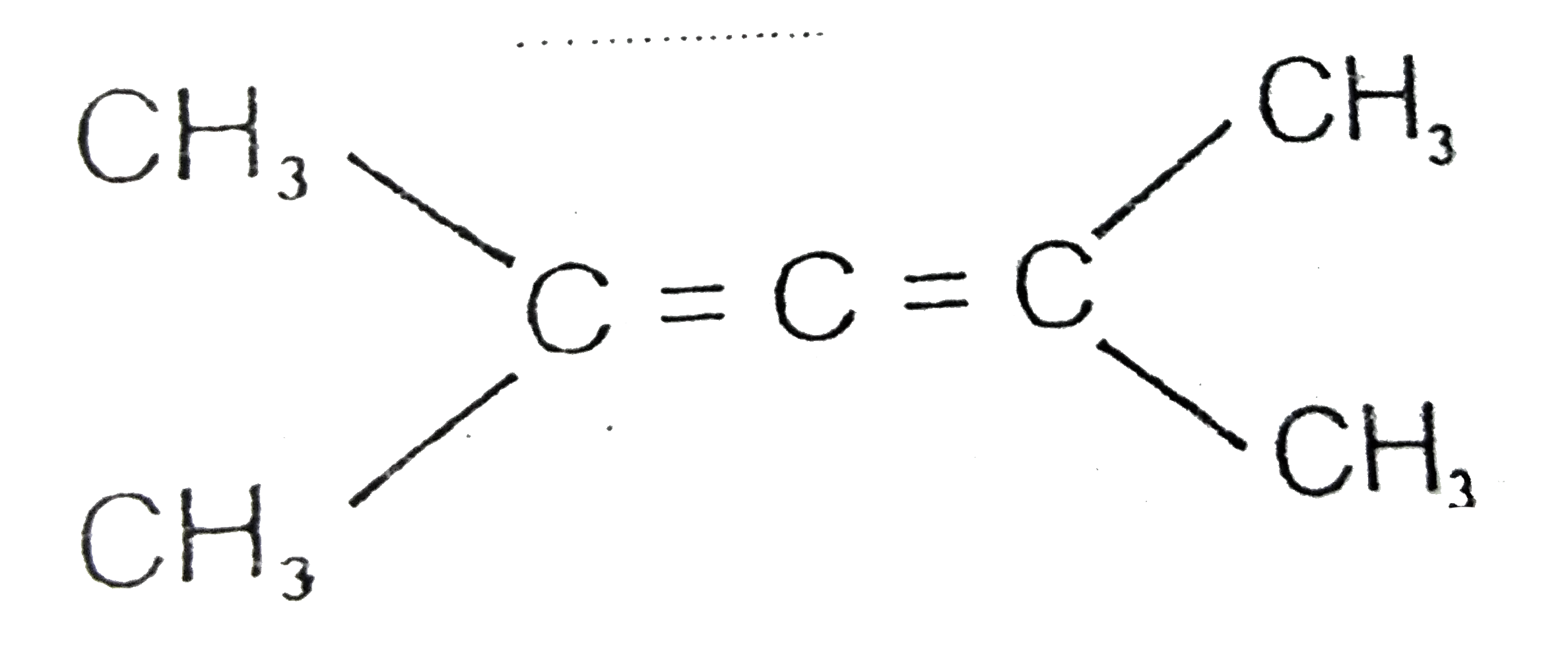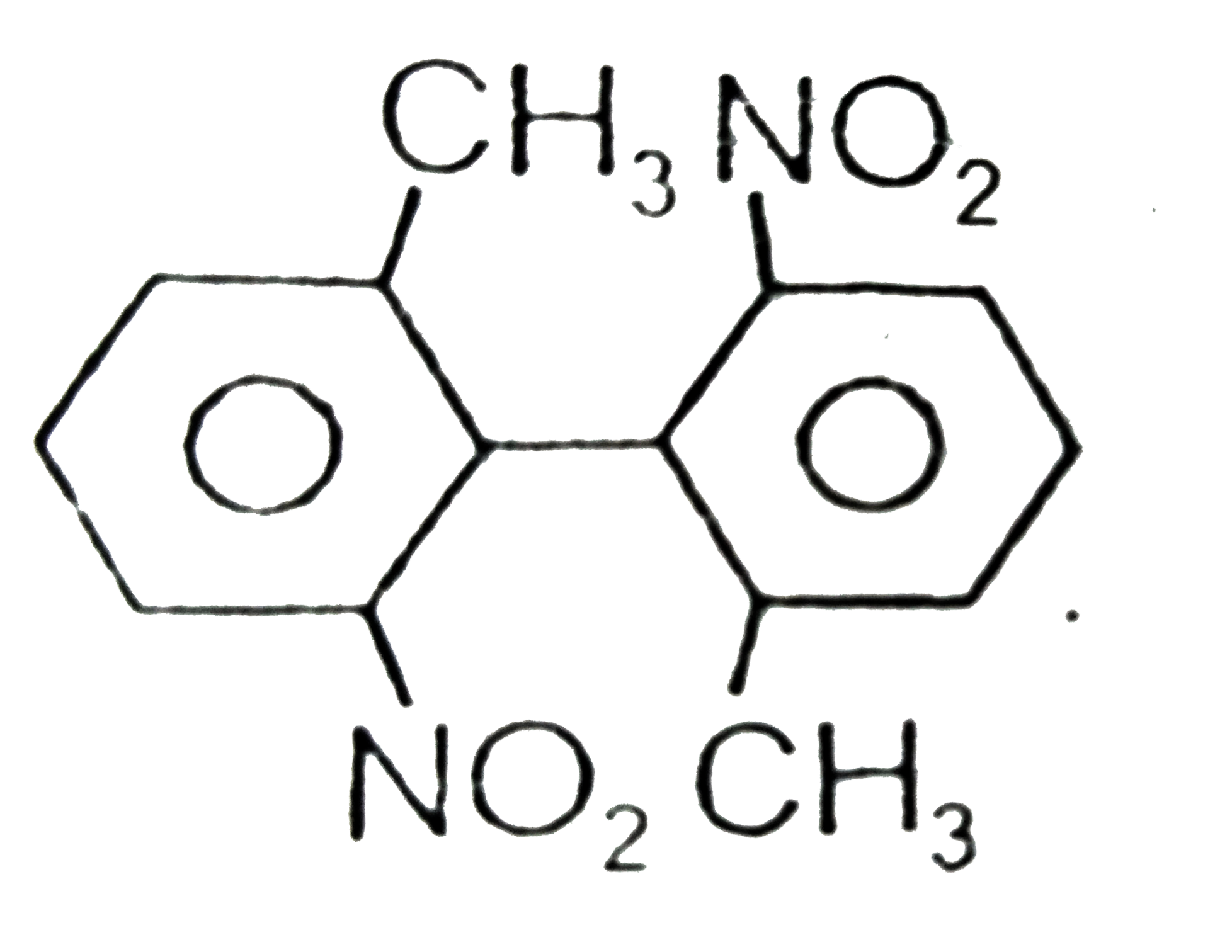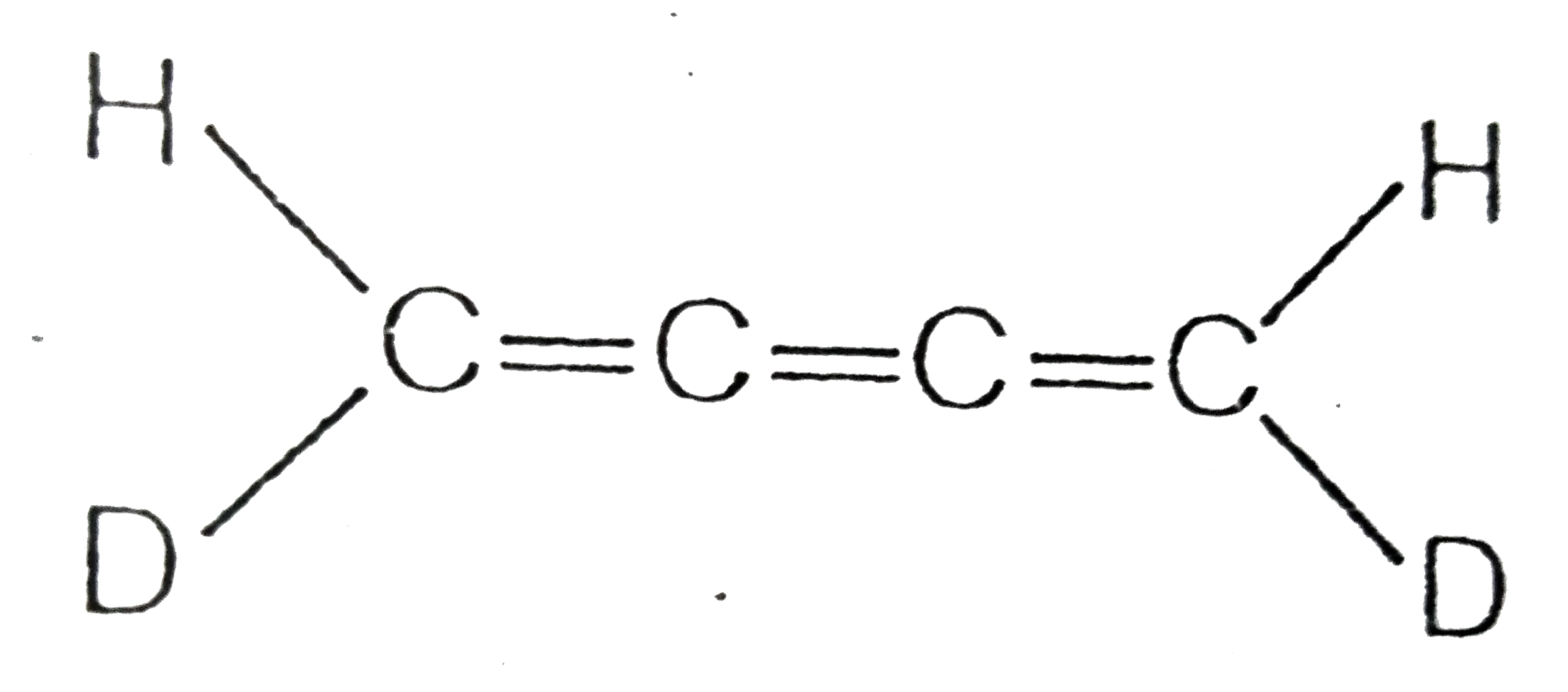Compound which rotates the plane polarised light is known as optically active compound . On the basis of direction of rotation two forms of an optically active compounds are termed as dextro and laevo rotatory . The two are termed as enantiomers . If we have a 1 : 1 mixture of d and l isomers of a given chiral compound , optical rotation of such mixture is zero Such a mixture is optically inactive and is called a recemic modification.
The net specific rotation of any mixture of the d and isomers of a given chiral compound is equal to the weighted average of the rotations due to both the isomers Mathematically if can be expressed as :
[α]≠t=fd[αd]+f1[αl]
Where fa and fl are fractions of d and l isomers respectively and [αd],[αl] are their specific rotations
Which of the following molecule can resolved into enantiomers ?



All of these
The correct Answer is:2
Topper's Solved these Questions
- HALOALKANES AND HALOARENES BOOK - AAKASH INSTITUTECHAPTER - HALOALKANES AND HALOARENES EXERCISE - Assignment (Section - E) ( Assertion - Reason type Questions )
7 Videos
- HALOALKANES AND HALOARENES BOOK - AAKASH INSTITUTECHAPTER - HALOALKANES AND HALOARENES EXERCISE - Assignment (Section - F) (Matrix - Match Type Question )
2 Videos
- HALOALKANES AND HALOARENES BOOK - AAKASH INSTITUTECHAPTER - HALOALKANES AND HALOARENES EXERCISE - Assignment (Section - C ) ( Objective Type Question(More than one options are correct ))
18 Videos
- GENERAL PRINCIPLES AND PROCESSES OF ISOLATION OF ELEMENTSBOOK - AAKASH INSTITUTECHAPTER - GENERAL PRINCIPLES AND PROCESSES OF ISOLATION OF ELEMENTSEXERCISE - Try Yourself
33 Videos
- HYDROCARBONSBOOK - AAKASH INSTITUTECHAPTER - HYDROCARBONSEXERCISE - Assignment(Section - D) (Assertion -Reason Type Question)
24 Videos
Similar Questions
An optically active compound
View SolutionCompound which rotates the plane polarised light is known as optically active compound . On the basis of direction of rotation two forms of an optically active compounds are termed as dextro and laevo rotatory . The two are termed as enantiomers . If we have a 1 : 1 mixture of d and l isomers of a given chiral compound , optical rotation of such mixture is zero Such a mixture is optically inactive and is called a recemic modification.
The net specific rotation of any mixture of the d and isomers of a given chiral compound is equal to the weighted average of the rotations due to both the isomers Mathematically if can be expressed as :
[α]≠t=fd[αd]+f1[αl]
Where fa and fl are fractions of d and l isomers respectively and [αd],[αl] are their specific rotations
The pure d isomer of certain chiral compound has
[α]25d=+55∘.A non racemic mixture of this compound has a net [α]25d=−11∘. What is the fractions of this isomer in mixture ?
View Solution
Knowledge Check
An optically active compound
A(a) Rotates the plane polarised lightB(b) Changing the direction of polarised lightC(c) Do not allow plane polarised light to pass throughD(d) None of the aboveAn optically active compound
Arotates the plane of polarised lightBchanges the direction of polarised lightCdoes not allow plane polarised light to pass throughDnone of these.Compound which rotates the plane polarised light is known as optically active compound . On the basis of direction of rotation two forms of an optically active compounds are termed as dextro and laevo rotatory . The two are termed as enantiomers . If we have a 1 : 1 mixture of d and l isomers of a given chiral compound , optical rotation of such mixture is zero Such a mixture is optically inactive and is called a recemic modification.
The net specific rotation of any mixture of the d and isomers of a given chiral compound is equal to the weighted average of the rotations due to both the isomers Mathematically if can be expressed as :
[α]≠t=fd[αd]+f1[αl]
Where fa and fl are fractions of d and l isomers respectively and [αd],[αl] are their specific rotations
What is the enantiomeric excess in any pure sample of an optically active substance ?A0.5B1C0DDepends upon the specific rotation
Compound which rotates the plane polarised light is known as optically active compound . On the basis of direction of rotation two forms of an optically active compounds are termed as dextro and laevo rotatory . The two are termed as enantiomers . If we have a 1 : 1 mixture of d and l isomers of a given chiral compound , optical rotation of such mixture is zero Such a mixture is optically inactive and is called a recemic modification.
The net specific rotation of any mixture of the d and isomers of a given chiral compound is equal to the weighted average of the rotations due to both the isomers Mathematically if can be expressed as :
[α]≠t=fd[αd]+f1[αl]
Where fa and fl are fractions of d and l isomers respectively and [αd],[αl] are their specific rotations
The pure of isomer of certain chiral compound has
[α]25d=+55∘.A non racemic mixture of this compound has a net [α]25d=−11∘. What is the fractions of this isomer in mixture ?
View SolutionAn optically active compound is
View SolutionWhich is a optically active compound ?
View SolutionOptical active compounds have same
View SolutionThe d- and l- forms of an optically active compound are called
View Solution
